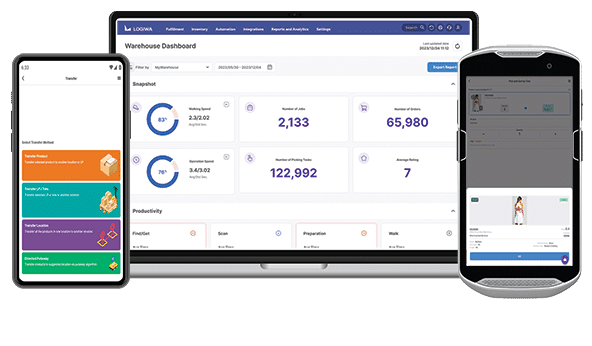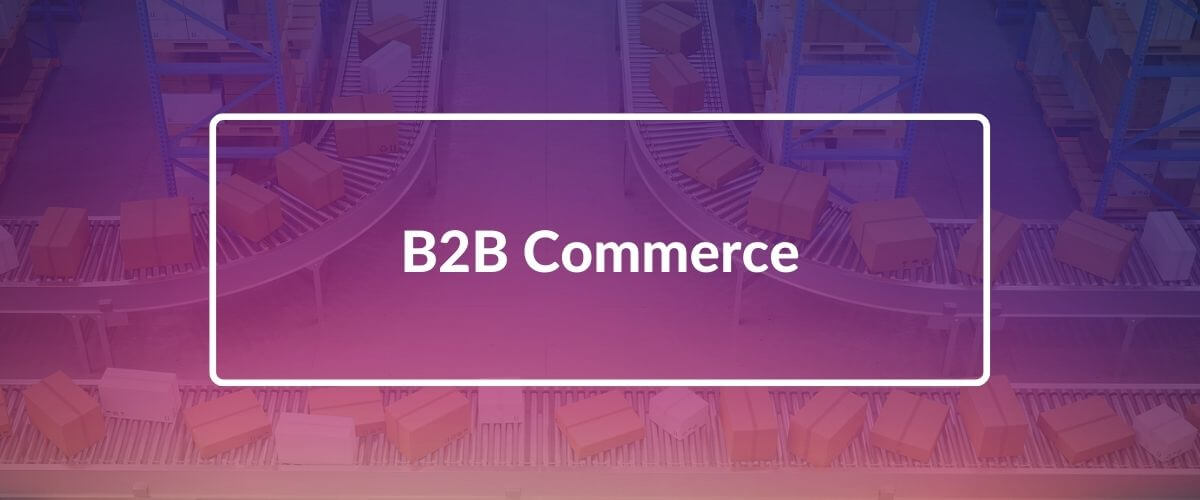As much as it may sometimes seem like running a business is like living on an island, in truth, running a business can be a more collaborative experience with other businesses.
When a business begins to buy things—materials, manufacturing items, products, etc.—from another business, this is a special type of relationship known as a business-to-business (B2B) relationship.
As mentioned, this relationship only depicts when two businesses work with one another – one as a source of products/items and the latter as a recipient of those products.
When you think of retailers, you are likely imagining the more common business-to-customer scenario, when a customer interacts with a business and the business only interacts with the customer. This specific relationship is a business-to-customer one.
So, as you may be able to intuit, a business-to-business relationship is one where a business works solely with another business. Another way to look at it is that it is still a type of business-to-customer relationship, but the customer in this particular instance is an entire other company.
In this guide, we’ll explore:
- What Is B2B Ecommerce?
- How Does B2B Ecommerce Work?
- Why Is B2B Ecommerce Important?
- Pros and Cons of B2B Ecommerce
- FAQs
What Is B2B Ecommerce?
As touched upon already, a B2B relationship is one wherein two businesses engage in a business relationship.
Typically, one business will be the provider and the other the recipient, but it might be more flexible than that. This relationship can show up in several ways – for example, an office supply retailer such as Office Depot or OfficeMax will have the specific wares that other businesses will require in their offices.
To simplify it even further, let’s say you work inside an office building at your job for Company X. Company X has gotten all of the office chairs, computers, desks, and office supplies (such as pens, pencils, staplers, etc.) from Office Depot.
In this situation, this would mean that Company X and Office Depot are in a business-to-business relationship, where Office Depot is the supplier and Company X is the recipient. (Realize that if you were to walk into Office Depot to buy some file folders, your relationship with Office Depot would be a business-to-customer one because you are a singular customer.)
How Does B2B Ecommerce Work?
B2B ecommerce works the same way that all ecommerce works. This is to say that there is a company that supplies a product and there is a company that buys a product.
To look at it another way, you can say that one company acts as a company and the other one acts as a customer. Similar to all ecommerce transactions in this day and age, the customer decides that they need a specific item/product/merchandise, and the company packages and delivers it to the “customer” (which is a business in this case).
When you buy something from Amazon or Target online, you are interacting with a B2C ecommerce website. You’re selecting something from their website and then the retailer (Amazon/Target) has to package the item, get a packing slip, and send your product directly to you.
This same scenario plays out when it comes to businesses who engage in business-to-business ecommerce relationships with specific retailers/businesses: they buy what they want on the appropriate B2B ecommerce website, and they wait for their chosen product to be delivered to them.

Why Is B2B Ecommerce Important?
B2B ecommerce is important because it allows recipient companies to focus their attention on an end product that would make their specific customers happy. That said, working with a company to acquire the desired products requires its own B2B solutions, and is unique from a traditional business-to-consumer (B2C) or direct-to-consumer (DTC) model.
Let’s use the example of popular retail chains like Home Depot or Lowe’s to illustrate this scenario. Like many home improvement superstores, these retailers have a plethora of home-improvement sections within their spaces, one of which is the lumber section. But where do the items in these sections come from?
It goes without saying, but employees don’t run off to the nearest forest to chop down the trees, treat them accordingly, and then cut them into the lumber pallets that line the shelves of these stores. Instead, these mega retail businesses work directly with one or more lumber companies that source/craft the desired lumber pallets and items for the store to sell.
The relationship between retailers and their suppliers, like the one illustrated with home improvement stores, is a prime example of a business-to-business relationship. What makes it fall under the ecommerce umbrella is that in more recent years, retailers have been able to go to their suppliers’ websites to choose what they need.
The best B2B websites help companies to work more efficiently together and support ongoing business-to-business relationships. This arrangement also allows stores to offer more variety to customers in terms of getting the goods they want. Rather than having to deal with the lumber company itself, consumers are able to have convenient access to many items in one location – all thanks to B2B.
Without B2B relationships, the items you purchase from major retailers simply wouldn’t be available to you. It takes top-notch B2B solutions working in the background to ensure both businesses and consumers get access to everything they need.
Pros and Cons of B2B Ecommerce
The success of B2B operations and their supply chains affects more than just B2B commerce. Nowadays, B2B relationships and B2B ecommerce websites are key to supporting B2C and DTC commerce by extension.
Pros
- Gives customers access to more items that they need without having to:
- Make the item themselves.
- Deal with the sourcing company and pay more for larger amounts of the source material that they will then still have to rework for their own needs.
- Allows businesses to source exactly what they need for their customers’ wants, allowing them to gauge the quality and efficiency of the wares.
- Allows businesses to network with other businesses, which can help with increasing a business’s customer base.
- Working with reputable businesses in a healthy and communicative B2B experience can provide products and great service that will ultimately give customers a much better customer experience.
Cons
- Customers can’t verify the quality of source materials.
- When it comes to business-to-business relationships, most supplier companies require that the recipient company will:
- Buy materials in bulk, which can get pricey.
- Work with them (perhaps even exclusively) for a specific period.
- If business-to-business relationships go south, it can have greater financial impacts than in a business-to-customer scenario.
- If there is any sort of issue on the supplying company’s end, the recipient company might experience extreme holdups in its supply chain, meaning that its customers may not get their desired orders on time.
FAQs
What is the difference between B2B and B2C ecommerce?
Business-to-business (B2B) is where a business works with another business. For example, if you own a furniture business – where you sell desks, computer chairs, etc. – another business might work with you to source furnishings for their office.
Alternatively, business-to-customer (B2C) is what you might imagine when you think of any large retailer: Target, Walmart, Amazon, etc. B2C is when a business works directly with a customer to handle a set of orders or other types of business transactions.
What are some benefits to having a B2B ecommerce site?
If you have a B2B ecommerce site, you will be able to work more closely with other businesses. Whether they are businesses in your field or otherwise, having a B2B ecommerce site can help you with networking and with getting sales.
Whereas B2C ecommerce will only put you with a singular customer per transaction (and that singular customer will likely only get you another sale/another customer at most), working with a business can get you more attention from their large number of customers and other contacts.
Is ecommerce a B2B or B2C?
Ultimately, it depends on who the company is doing business with. When it comes to ecommerce, it can either be a B2B or a B2C relationship. The B2C relationship is what customers tend to think about when they envision doing business with a company. This is the ecommerce relationship where a customer buys an item from a retailer and the retailer sends it to them.
Alternatively, ecommerce can be a B2B relationship when a business goes to another business and buys materials, resources, packaging items, etc. Ecommerce is only the indicator that business is being done online, meaning that ecommerce can either be B2B or B2C.
Is Amazon a B2B or B2C?
When it comes to B2B vs. B2C services in regard to Amazon, it depends on what specific element of Amazon’s processing that we’re discussing. If Amazon is working with a smaller retailer (for example, a small business that is working with Amazon to use their platform to increase their sales), this would be considered a B2B situation.
However, when most customers envision Amazon, they are envisioning the B2C aspect that Amazon is known for. This is the element where the customer buys a product from Amazon and then Amazon directly interacts with the customer to send them their order.
When it is just a business interacting with a customer, this is called a B2C situation.
Related Terms
The Amazon Effect
Are there other options for ecommerce outside of Amazon? Yes! New warehouse technology is helping brands and sellers avoid the Amazon Effect.
Are you ready for peak season? We highlight eight common pitfalls ecommerce brands and 3PL providers face when preparing for the busiest time of year.
Your Essential Guide to DTC Shipping for Direct-to-Consumer Fulfillment With smart shipping you can meet the growing demands of DTC fulfillment, allowing you to scale your operations.
System integrations can be hard. Working with Logiwa can make them easy, setting your DTC fulfillment operation up for success.
With the right reporting technology, you can have both the real-time data you need to optimize day-to-day warehouse operations and the intelligence you need for longer term decision making.





